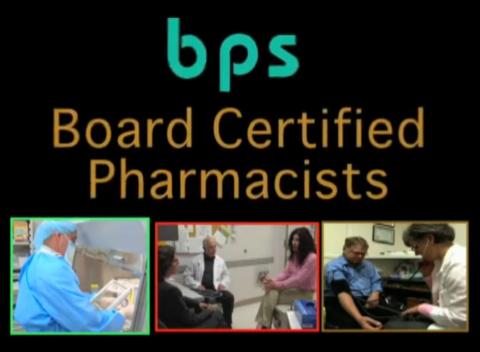Pharmacists in the ER Equals Better Patient Care
/One of the biggest impacts a pharmacist can make in the hospital setting is in the emergency department (ER). There has been a growing interest and trend in placing pharmacists in the ER to review medications, both reconciliation of home medications and medications administered in the ER to ensure correctness and cut down on medication errors and drug interactions that contribute up to 7,000 yearly deaths in the US. A pharmacist in the ER can review real-time orders that are typically bypassed by staff pharmacists due to the urgency of an ER patient.
Pharmacists can also improve flow of patients through the ER, educate prescribers and staff development about medications and their costs and also utilize the ER as a place to precept and mentor students and residents. Pharmacists can participate in codes, help with admissions in home medications and help with discharge medication reconciliation. Pharmacists in the ER can also be involved with the ER department in providing presentations, publications and other activities to the department. Pharmacists can monitor the use of expensive medications to make sure use is consistent with approved criteria (Factor VII, alteplase, etc.) and conduct MUEs in the emergency room setting. These pharmacists could also be involved with microbial culture follow-up. The emergency department is usually a place of unpredictability in acute illnesses and patient volume. High risk medications are used more often and a greater chance of a medication error reaching the patient.
Currently in most hospital settings, hospitals use a clerk to fill out a home medication sheet which typically can include errors in drug name, drug strength and directions. Many times staff pharmacists are clarifying home medications days later than what is optimal. I have personally witnessed mistakes in high-risk medications like warfarin that are discovered days later. In short, when a patient is admitted, they are prescribing for themselves with no oversight from a pharmacist, and physicians do not want to take ownership of what the patient takes at home since they are presenting with something acute that may have nothing to do with the herbals they take on the side.
The American Society of Health-System Pharmacists (ASHP) believes every hospital pharmacy department should provide its emergency department with the pharmacy services that are necessary for safe and effective patient care. The Joint Commission also has compliance requirements that can be met with a pharmacist in the emergency department (MM.4.10. which requires that all medication orders be evaluated by a pharmacist prior to administration of the first dose and MM 7.10 which identifies high-risk or high-alert medications and all the processes involved from procuring to monitoring and medication reconciliation). One of the National Patient Safety Goals is to accurately and completely reconcile medications across the continuum of care which would include the first stop in the emergency department.
One of the most common reasons most hospitals do not employ emergency room pharmacists is due to cost. Small hospital pharmacies are staffed at a bare minimum. Most hospitals do not realize that pharmacists working in the emergency room can reduce readmissions, medication errors and drug interactions to save money but more importantly increase patient safety while being treated for an acute illness.
1. Impact of a prescription review program on the accuracy and safety of discharge prescriptions in a pediatric hospital setting. J Pediatr Pharmacol Ther. 2008 Oct;13(4):226-32. doi: 10.5863/1551-6776-13.4.226.
2. Levy DB. Documentation of clinical and cost saving pharmacy interventions in the emergency room. Hosp Pharm. 1993;28:624-627,630-634,653.
3. American Society of Health-System Pharmacists. ASHP statement on the role of health-system pharmacists in emergency preparedness. Am J Health Syst Pharm. 2003; 60:1993-5.
4. Cohen V, et al. Effect of clinical pharmacists on care in the emergency department: a systematic review. – Am J Health-Syst Pharm. 2009;66;1353-1361














